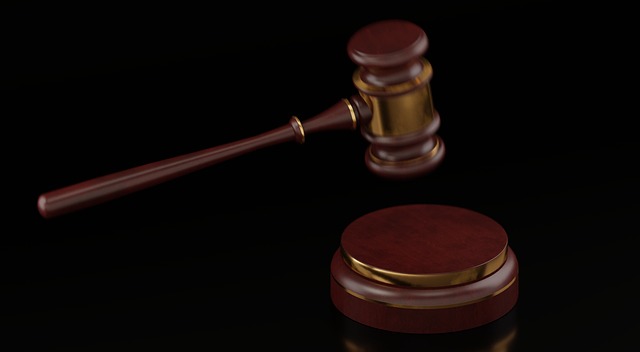RF Regulatory Agency investigations ensure compliance with safety standards, addressing non-compliance through structured approaches including evidence review, interviews, and appeals. The Criminal Procedure Appeal Process Explained is integral to upholding fairness during these inquiries, especially in complex white-collar and economic crime cases, while promoting adherence to RF regulations and protecting individual rights.
“Uncover the intricacies of RF Regulatory Agency Investigations, a crucial aspect of maintaining the integrity of radio frequency standards. This comprehensive guide explores the multifaceted role of regulatory bodies in ensuring compliance, delving into investigation procedures and legal frameworks. From understanding non-compliance to navigating the complex Criminal Procedure Appeal Process, readers will gain valuable insights into appealing RF-related convictions. Get ready to demystify this vital process.”
- Understanding RF Regulatory Agency Investigations
- The Role of Regulatory Bodies in Enforcing Radio Frequency (RF) Standards
- Investigating Non-Compliance: Procedures and Legal Framework
- The Criminal Procedure Appeal Process: A Guide for Appealing RF-related Convictions
Understanding RF Regulatory Agency Investigations

RF Regulatory Agency Investigations play a critical role in upholding compliance with radio frequency (RF) standards and ensuring the safety and security of wireless technologies. These investigations are designed to identify and rectify non-compliance, including issues related to RF emissions, device certification, and spectrum utilization. Understanding the process is crucial for businesses operating in this domain, as it involves a meticulous review of equipment, documentation, and operational procedures.
The Criminal Procedure Appeal Process Explained is an integral aspect of these investigations, ensuring fairness and accuracy. When irregularities or potential violations are suspected, regulatory agencies follow a structured approach, examining evidence, interviewing personnel, and evaluating the respective business’s practices. This process aims to achieve extraordinary results by holding entities accountable for white-collar and economic crimes while promoting adherence to RF regulations.
The Role of Regulatory Bodies in Enforcing Radio Frequency (RF) Standards

Regulatory bodies play a pivotal role in enforcing Radio Frequency (RF) standards, ensuring that technologies and devices operating within the RF spectrum comply with safety and performance guidelines. These agencies are tasked with navigating complex regulatory landscapes to protect consumers, promote fair competition, and foster innovation. They conduct thorough investigations into potential violations of RF regulations, utilizing advanced techniques and expertise to analyze signals, equipment, and device performance.
By employing a robust criminal procedure appeal process, these bodies can address enforcement challenges effectively. This process, much like the criminal procedure appeal process explained, allows for a structured review of decisions, ensuring fairness and accuracy. Through rigorous investigation and appeal mechanisms, regulatory agencies strive to achieve extraordinary results, safeguard respective businesses from wrongful indictments, and maintain the integrity of the RF spectrum for future advancements.
Investigating Non-Compliance: Procedures and Legal Framework

When an RF Regulatory Agency suspects non-compliance with regulations, it initiates an investigation following strict procedures outlined in its legal framework. This process involves gathering evidence, interviewing parties involved, and analyzing relevant data to determine if a violation has occurred. The agency’s goal is not only to enforce adherence to rules but also to deter future infractions through swift and effective action.
The legal framework guiding these investigations balances the need for thorough probes with protections for individuals’ rights. In cases of alleged white-collar and economic crimes, the process can be complex, with opportunities for appeals if individuals believe their rights have been violated. An unprecedented track record of successful outcomes for his clients often reflects the expertise and strategic approach employed by legal teams navigating these intricate criminal procedure appeal processes.
The Criminal Procedure Appeal Process: A Guide for Appealing RF-related Convictions

The Criminal Procedure Appeal Process Explained: A Guide for Appealing RF-related Convictions
In the event of a conviction related to Radio Frequency (RF) regulations, understanding the Criminal Procedure Appeal Process is crucial for anyone seeking justice. This process allows individuals to challenge their RF-related criminal charges at various stages of the investigative and enforcement process. It begins with reviewing the evidence, assessing procedural errors, and determining if there was a violation of due process rights. If a conviction was secured based on insufficient evidence or incorrect legal interpretations, an appeal can be filed.
The appeal process involves multiple steps, each offering opportunities to secure a complete dismissal of all charges. Legal teams specializing in white-collar defense play a vital role here, ensuring that every argument is presented effectively and adhering to the nuances of RF regulatory laws. Through meticulous research, strategic planning, and robust legal arguments, they guide clients through this labyrinthine process, aiming for an outcome that reflects fairness and justice.
RF Regulatory Agency Investigations play a vital role in ensuring compliance with radio frequency standards, addressing non-compliance through robust procedures and a strong legal framework. Understanding the criminal procedure appeal process is crucial for individuals facing RF-related convictions, offering a path to justice and clarification. By navigating these processes effectively, folks can foster a fair and transparent system, revolutionizing how regulatory bodies interact with industry players.






